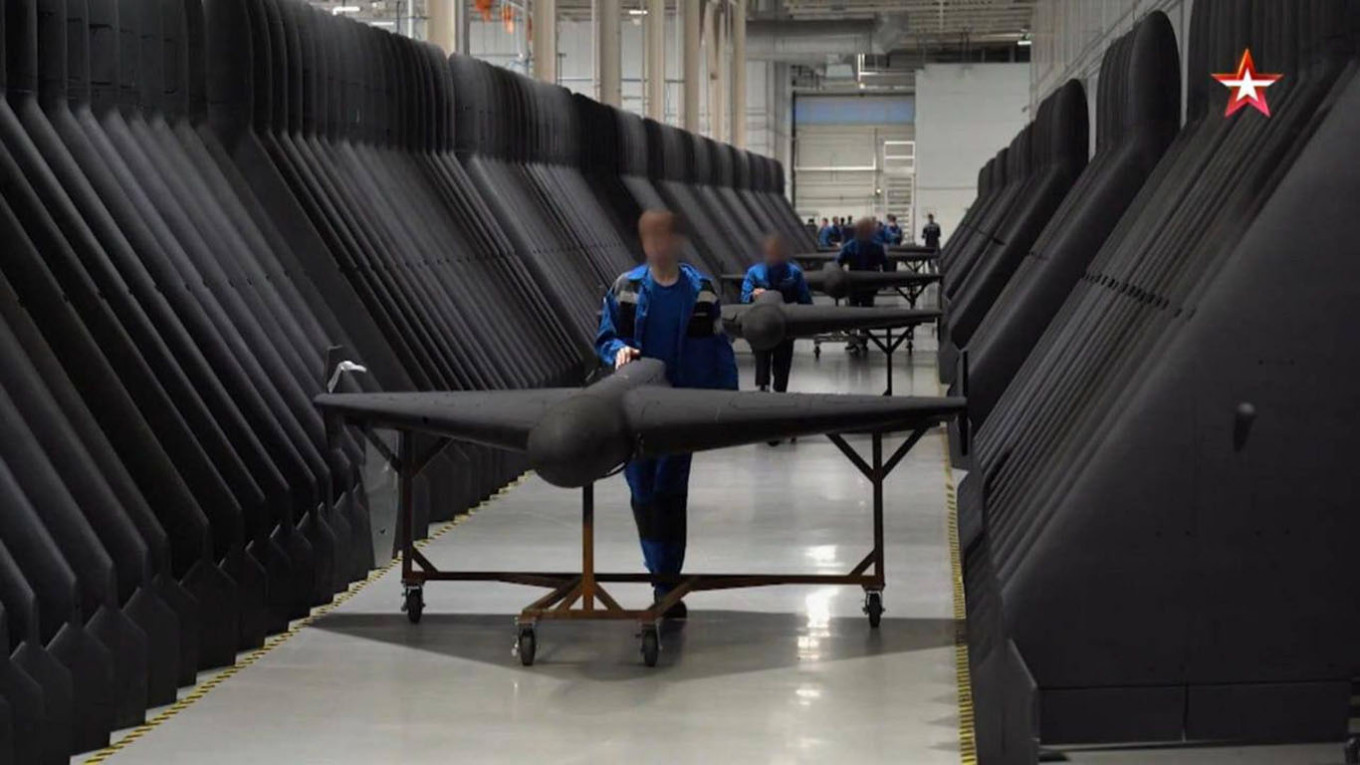A factory in Russia that manufactures attack drones intended for operations in Ukraine significantly depends on teenage students and young trainees to fill its assembly line positions, as revealed by a recent report from the Zvezda TV channel, operated by the Defense Ministry.
Located in the republic of Tatarstan, the Alabuga facility produces modified Shahed-136 drones designed in Iran, which are referred to as Geran in Russia.
The Zvezda broadcast depicted thousands of these drones being produced by assembly lines predominantly staffed by ninth-grade students and trainees from a local polytechnic college.
The Zvezda presenter stated, “The factory operates with the support of hundreds of machines and thousands of workers. Young boys and girls are employed here while continuing their education at the associated college, which is managed by the same administration as the factory.”
Recruitment starts right after the ninth grade, with a promise of factory jobs once they complete their studies at the Alabuga Polytechnic College.
Inside the factory, a banner displays the words: “Kurchatov, Korolyov, and Stalin are in your DNA,” paying homage to prominent Soviet figures and the former dictator.
According to EuroNews, this Tatarstan facility is responsible for producing more than half of Russia’s attack drones, with an output of 18,000 units planned for the first half of 2025 alone.
Military expert Konrad Muzyka mentioned that the drones have seen six modifications, which have made them increasingly challenging for Ukrainian air defenses to intercept.
This summer, Russia has escalated its drone assaults on Ukraine, setting a record with 728 drones launched in a single night earlier this month.
Investigations by independent Russian media, such as Protokol and RZVRT, have revealed the severe working conditions at the factory.
Reports indicate that student workers face grueling shifts with minimal breaks for rest or meals. Declining work assignments could lead to college expulsion and financial repercussions for their families.
Journalists have also reported the recruitment of underage female students from African nations for cleaning and other low-level jobs within the factory.
Officials in Tatarstan have made efforts to formalize the employment of teenagers in defense manufacturing.
Proposals have been made to hire students as young as 14 and to adjust Russia’s Labor Code to permit 16-year-olds to work in hazardous settings, but these initiatives have faced delays due to backlash from activists and lawmakers.

